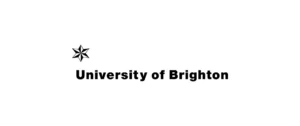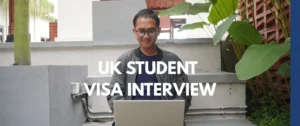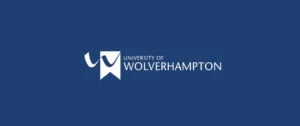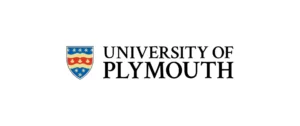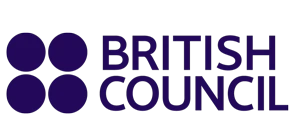The UK credibility interview is a focused one-to-one assessment used by universities and visa officers to decide if a Student-route applicant is a genuine student. It tests your knowledge of your chosen course, your reasons for studying in the UK, your finances, and whether you have realistic plans to complete your programme. This guide gives you everything you need to prepare confidently and present clear, consistent, credible answers.
Who needs a credibility interview?
Not every applicant is interviewed, but many universities and Entry Clearance Officers will request this check for applications that need extra verification — for example, when an academic or financial record looks unusual, when there’s a study gap, or when the admissions team or visa officer wants reassurance that the applicant understands their course and will study seriously.
Interview format and timing
The interview usually lasts 15–30 minutes and can be: in person, by phone or by video call. It is one-to-one and not usually recorded (the interviewer will take notes). Expect standardised questions; interviewers won’t offer long prompts — it’s up to you to give a clear, concise and specific answer.
Typical scheduling points:
-
Often held after a conditional offer is made and before a CAS is issued.
-
Commonly booked several months before the course start date.
-
If you can’t attend the scheduled slot, notify the university immediately and ask to reschedule.
What interviewers judge
Interviewers are assessing:
-
Genuineness of your intention to study (not immigrate).
-
Understanding of the course and how it fits your background.
-
Language ability to complete studies in English.
-
Financial credibility — ability to support fees and living costs.
-
Consistency between your application, documents and what you say.
Core documents and evidence to prepare (bring digital and printed)
Have organised, labelled copies — both digital and printed — of:
-
Your passport / ID pages.
-
Your original academic transcripts and degree certificates (and certified English translations if applicable).
-
CV or résumé that matches the dates on your application.
-
Offer letter and course brochure or module list (print the most relevant module descriptions).
-
Proof of funds (bank statements, scholarship letters, sponsor letters) showing required amounts and 28 consecutive days where applicable.
-
Employment letters or payslips if claiming work experience or family support.
-
Evidence for any study gap (employment certificates, course enrolment, caring responsibilities, medical records).
-
English language test report (IELTS/other) or proof of prior study in English.
-
Accommodation confirmation or invoice for pre-paid housing (if you plan to rely on this for maintenance offset).
-
Any professional certificates (e.g., ACCA exemptions, engineering accreditations) are tied to your choice of course.
Organise these in a single PDF and have printed originals in a labelled folder for easy reference.
How to structure your answers — the quick recipe
-
Directly answer the question (1–2 sentences).
-
Add one specific detail (course module, employer name, GPA number).
-
Tie it to a future step (how it helps your career back home or next level study).
Example: “I chose the MSc in Data Analytics at X because of its machine-learning module and industry project; I plan to return to [company name] and lead analytics projects there.”
Sample questions and model answers (strong vs weak)
Q: Why study in the UK rather than in your home country?
Weak: “People say UK degrees are good, and I want to travel.”
Strong: “The UK’s practical, research-led MSc in Supply Chain Management has direct industry placements. My home country’s programmes are largely theory-based; the placement and accredited modules at X University will give me applied skills to improve supply chain operations at [company] when I return.”
Q: Why this university and this course?
Weak: “It’s well ranked and looks nice.”
Strong: “I chose this course because of Professor Y’s research on renewable microgrids and the mandatory industry project with [company partner]. Module Z aligns with my engineering experience, and that placement will enable me to implement similar solutions in my home market.”
Q: How will you fund your studies?
Weak: “I’ll find a job there and my parents will help.”
Strong: “I have £XX in savings held in my account since [date], a sponsor letter from my father showing his salary and bank statements for 6 months, and a scholarship award letter covering part of my fees. I’ve budgeted rent and living costs and don’t rely on part-time work to meet the maintenance requirement.”
Q: What will you do after graduation?
Weak: “I’ll try to find work in the UK.”
Strong: “I plan to return to [company name], where I have a written offer to rejoin in a senior analyst role contingent on advanced training. The UK course provides the skills listed in my employer’s letter, and the expected starting salary there is [amount], which is higher than in my current role.”
Q: Explain any gaps in your education or employment.
Weak: “I didn’t find work.”
Strong: “During 2022–2023 I worked on a family business and completed an online certification in project management. Here are pay slips and the course certificate; I decided to pursue the degree now to specialise and return to a managerial role.”
Language checks and how to demonstrate ability
-
Speak clearly and at a measured pace.
-
Use course-related vocabulary naturally (module names, methods, tools).
-
If you need an interpreter, request it before the interview; for most degree types, you’re expected to respond in English.
Finance: what to explain (don’t overcomplicate)
-
State clearly how you meet maintenance and tuition requirements.
-
Explain the source of funds briefly (savings, sponsor, scholarship) and provide matching documents.
-
If family sponsor: explain their employment and income source, and show bank evidence and relationship proof.
-
Never state you will rely on part-time earnings to meet baseline living costs.
Tone, body language and video tips
-
Dress smart-casual; look professional.
-
Sit in a quiet, neutral place for video calls with good lighting.
-
Maintain eye contact and nod to show you’re engaged.
-
Keep answers concise; aim for 30–60 seconds per question unless asked to expand.
Common pitfalls to avoid
-
Giving vague or generic answers.
-
Inconsistency between your documents and what you say.
-
Overemphasising desire to stay in the UK long-term — focus on study, then career plans in the home country.
-
Poorly organised evidence or inability to produce documents quickly.
-
Mentioning reliance on casual work for living costs.
Practice routine (7-day plan)
Day 1: Gather and organise all documents into a single PDF and print a clean folder.
Day 2: Draft concise answers to common questions (Why course, Why uni, Funding).
Day 3: Do a mock interview with a friend/instructor and record yourself.
Day 4: Refine answers and memorise a one-sentence career goal and funding explanation.
Day 5: Run a second mock with stress practice (phone/video), check tech setup.
Day 6: Double-check documents; prepare a one-page cheat sheet (not to read, but to calm you).
Day 7: Rest, sleep well, and review key facts (course modules, sponsor details).
If something unexpected comes up in the interview
-
Pause, ask for clarification if a question is unclear.
-
If you make a mistake, correct it succinctly rather than rambling.
-
If asked about post-study plans, emphasise study intentions and plausible home-country career steps.
After the interview — what to expect
-
The interviewer will make a written note and pass it to the admissions/visa decision team.
-
A favourable assessment may lead to a request for a deposit and CAS issuance.
-
If the interview raises doubts, the university may ask for further documentation or clarification or withhold CAS until resolved.
If you fail the credibility check
-
Remain calm — you can provide extra evidence or clarification.
-
Ask (politely) what specific concerns they have and whether you can submit further documents.
-
Consider reapplying with stronger documentation or professional statements that clarify career intent.
Extra tactics that help credibility
-
Provide a short, written one-page study plan tying modules to your past experience and future role.
-
Attach a formal employer statement showing intent to rehire or a concrete job prospect post-graduation.
-
Show evidence of visits to the university website, emails with lecturers, or relevant short courses you completed that demonstrate genuine academic engagement.
-
If you have a professional membership or accreditation linked to the course, mention it and keep proof.
FAQs (quick answers)
Q: Will they test my English?
A: They will judge language through conversation. Bring your English test certificate if you have one.
Q: Can I use an interpreter?
A: Interpreters are usually only permitted for pre-sessional English courses; otherwise, you should answer in English. Confirm with the university in advance.
Q: How long until I get CAS after a successful interview?
A: Typically a few days to a few weeks, depending on the university’s internal process and any additional checks.
Final checklist (print and bring)
-
Passport and ID
-
Offer letter and course/module list
-
Academic transcripts and translations
-
CV/employment letters/reference letters
-
Bank statements, sponsor letters, scholarship award letters
-
English test certificate
-
Accommodation confirmation or invoice (if applicable)
-
One-page study plan linking course to career goals
Conclusion
The credibility interview is an opportunity to show you are prepared, focused and serious about your studies. With honest, specific answers, organised evidence, and a calm, confident delivery, you’ll demonstrate credibility and increase your chances of a successful CAS and visa outcome.
If you want tailored practice, a mock credibility interview, or help preparing your documents and one-page study plan, we can help — click here to book a personalised session and we’ll prepare you step-by-step.

